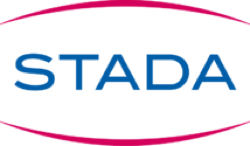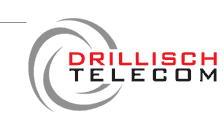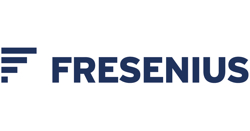ACTIONS CORNER
Bitter medizin for Basin Capital and Cinvent
 Nidda Healthcare Holding AG, the acquiring company of Bain Capital and Cinven, announced today that, as of expiry of the extended acceptance period at midnight (24:00 CEST) on June 22, 2017, only 65.52 percent of the STADA shares outstanding have been tendered under the voluntary public takeover offer. Consequently, the minimum acceptance threshold, which the bidder reduced from the original 75 percent to 67.5 percent on June 7, 2017, has not been reached.
Nidda Healthcare Holding AG, the acquiring company of Bain Capital and Cinven, announced today that, as of expiry of the extended acceptance period at midnight (24:00 CEST) on June 22, 2017, only 65.52 percent of the STADA shares outstanding have been tendered under the voluntary public takeover offer. Consequently, the minimum acceptance threshold, which the bidder reduced from the original 75 percent to 67.5 percent on June 7, 2017, has not been reached.
The company took the vote as a mandate to press ahead with its original strategy. According to STADA, the end of the takeover offer will have no effect on the growth targets for the current fiscal year.
According to market rumors, the shareholder structure of STADA contributed to the reluctant acceptance of the offer by its shareholders. However, what certainly created insecurity with investors is the AGM 2017, which has been adjourned without a proper explanation to shareholders. In light of the small gap between the minimum acceptance threshold and the number of shares tendered, this might have killed the deal.
Marginal result of the tender offer for Drillisch shares is no obstacle for the formation of a new player in the German telecommunications market
 United Internet AG reported that as of June 23, 2017, which was the expiry date of the voluntary public tender offer for shares of Drillisch AG, only 839.170 Drillisch shares have been tendered, which equals 1.24 percent of the total number of Drillisch shares in issue. The shares tendered raise the holding of United Internet in Drillisch to 30.9 percent. The marginal outcome of the offer comes a no surprise in light of the higher stock exchange quotation of Drillisch shares.
United Internet AG reported that as of June 23, 2017, which was the expiry date of the voluntary public tender offer for shares of Drillisch AG, only 839.170 Drillisch shares have been tendered, which equals 1.24 percent of the total number of Drillisch shares in issue. The shares tendered raise the holding of United Internet in Drillisch to 30.9 percent. The marginal outcome of the offer comes a no surprise in light of the higher stock exchange quotation of Drillisch shares.
The offer is part of an overall transaction. It is planned to combine the mobile and fixed-net retail business of United Internet with Drillisch. In this context, Drillisch acquires the 1&1 Telecommunications SE from United Internet, which in return receives Drillisch shares from two capital increases. A first capital increase by way of a consideration-in-kind increase became already effective on May 16, 2017. A second increase will be the subject of an extraordinary AGM of Drillisch on July 25, 2017. If things go as planned, United Internet will control 72.89 percent of Drillisch thereafter.
Yesterday`s proxy recommendations for today`s AGMs?
 At the 2015 AGM, SAP SE received a lot of criticism for its remuneration policy. Consequently, shareholders showed their dislike of the proposed system of executive board remuneration. Only 54.7 percent of the shares represented at the AGM voted in favor of the board proposal, a record low. After the AGM, the topic turned quite, until it became apparent, that the CEO of SAP received the highest salary among the DAX-CEOs in 2016. Not the absolute amount of remuneration was in the center of the discussion, though, but rather a lack of transparency regarding crucial bonus elements and the calculation process.
At the 2015 AGM, SAP SE received a lot of criticism for its remuneration policy. Consequently, shareholders showed their dislike of the proposed system of executive board remuneration. Only 54.7 percent of the shares represented at the AGM voted in favor of the board proposal, a record low. After the AGM, the topic turned quite, until it became apparent, that the CEO of SAP received the highest salary among the DAX-CEOs in 2016. Not the absolute amount of remuneration was in the center of the discussion, though, but rather a lack of transparency regarding crucial bonus elements and the calculation process.
Nonetheless, up to the AGM it looked like the company did not really care. With his opening remarks at the AGM, though, the chairman of the supervisory board, Prof. Hasso Plattner, surprised the audience with substantial transparency improvements, addressing most of the issues criticized, promising further amendments and announcing a roadshow in Europe and America to discuss the corporate governance of the company with investors.
So, everything´s fine now? Not at all, as is demonstrated by the votes casted on the formal approval of the acts of the supervisory board at the AGM, where a stunning 49.5 percent of voted against a discharge. However, at a second glance it becomes clear what really happened. Many institutions relied on the guidance provided by proxy advisors - not realizing, that proxy advisors are typically not present at AGMS and do not update their recommendations upon new developments. Not really a business model for German AGMs.
Fresenius acquires with a long term perspective
 Following the confirmation of talks with the US speciality generic pharmaceutical company Akorn, Inc. on April 7th, 2017, Fresenius, on April 24th announced the intention to strengthen and diversify the product portfolio of Fresenius Kabi via the acquisition of Akorn. The real surprise to the market, however, was the additional information that Fresenius Kabi will also acquire Merck KGaA's biosimilar business.
Following the confirmation of talks with the US speciality generic pharmaceutical company Akorn, Inc. on April 7th, 2017, Fresenius, on April 24th announced the intention to strengthen and diversify the product portfolio of Fresenius Kabi via the acquisition of Akorn. The real surprise to the market, however, was the additional information that Fresenius Kabi will also acquire Merck KGaA's biosimilar business.
The consideration for Akorn amounts to $4.3B., plus approximately $450M of net debt. The transaction is subject to approval by Akorn shareholders.
Merck´s biosimilars business with a product pipeline focused on oncology and autoimmune diseases, will be acquired for a purchase price of up to EUR 670M. While EUR 170M shall be paid in cash upon closing, the remaining amount is subject to milestones tied to development targets. Including expenses related to analytical testing, clinical studies, quality requirements specific to biosimilars, as well as marketing and sales activities, Fresenius expects to invest up to EUR 1.4B until projected EBITDA break even in 2022.
The investment into the biosimilar business will be mainly financed via the cash flow, while the financing of the acquisition of Akorn is planned to be made via debt instruments. Both acquisitions combined are expected to be neutral to group net income and EPS by 2020 and accretive from 2021 onwards.
Supported bid protects the interest of employees, production sites and the corporate strategy of STADA
 According to a news release on April 10th, 2017, the executive board and the supervisory board of STADA received two transaction offers for voluntary public tender offers in a structured bidding process. Both offers are subject to the approval of STADA´s executive board.
According to a news release on April 10th, 2017, the executive board and the supervisory board of STADA received two transaction offers for voluntary public tender offers in a structured bidding process. Both offers are subject to the approval of STADA´s executive board.
The release states that the boards decided in the best interest of the company to support the offer by Bain Capital and Cinven, who are offering EUR 65.28 per share plus a dividend of EUR 0.72 per share. This offer corresponds to an approximate 48 percent premium in relation to STADA´s unaffected share price and an approximately 19.6 percent premium in relation to STADA´s volume-weighted average share price over the lasts three months.
STADA, Bain Capital and Cinven have signed an investor agreement with extensive protection provisions for employees and production sites as well as the corporate strategy and later announced the offer. In addition, the release stated that the boards have reached the conclusion that it would also be in the interest of shareholders to support the bid. In particular, the chairman of the supervisory board, Mr. Ferdinand Oetker, stressed the fact that due to the successful negotiation strategy the transaction value could be increased by EUR 7.28 per share.
The offer runs from April 27th through June 8th 2017, while the AGM has been postponed to August 30st, 2017. Anybody surprised?















